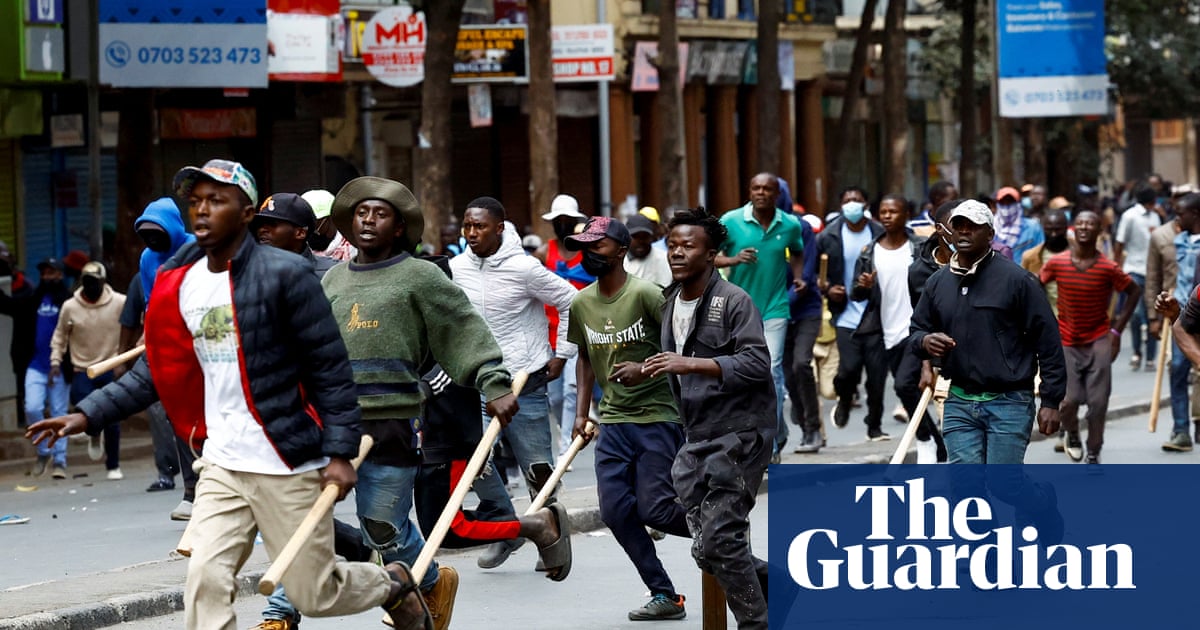Kenya on Edge: Reflecting on the Tumultuous Anniversary of Parliament's Storming

As Kenya stands on the precipice of a significant anniversary, the nation finds itself grappling with the echoes of a tumultuous event that shook its democratic foundations. One year ago, the storming of Kenya's parliament marked a dramatic chapter in the country's political narrative, one that continues to reverberate through its social and political landscape.
The anniversary of this unprecedented event has reignited fears of potential unrest, as tensions simmer beneath the surface of Kenyan society. The storming of parliament was not merely a physical breach of a government building; it was a symbolic assault on the democratic principles that underpin the nation. This act of defiance was a manifestation of deep-seated frustrations and disillusionment with the political status quo, reflecting a broader crisis of confidence in the country's leadership.
Key figures in this unfolding drama include political leaders who have been both criticized and defended for their roles in the events leading up to and following the storming. Their actions and rhetoric have been scrutinized, as they navigate the complex political terrain that has emerged in the aftermath. The anniversary serves as a stark reminder of the challenges that lie ahead for these leaders, as they strive to restore faith in Kenya's democratic institutions.
The implications of the storming extend beyond the immediate political sphere, touching on the socio-economic fabric of the nation. The event has exacerbated existing divisions, highlighting the urgent need for dialogue and reconciliation. As Kenya reflects on this anniversary, the path forward requires a concerted effort to address the underlying issues that fueled the unrest, including economic disparities and political disenfranchisement.
In this pivotal moment, Kenya stands at a crossroads. The anniversary of the storming of parliament is not just a commemoration of a past event, but a call to action for the nation to confront its challenges with resilience and resolve. As the country navigates this complex period, the lessons of the past year will be crucial in shaping a more stable and inclusive future.
🔮 Fortellr Predicts
Confidence: 80%
The anniversary of the storming of Kenya's parliament is expected to act as a significant flashpoint in the nation's ongoing socio-political struggles. The planned peaceful demonstrations across the country may initially unfold with little incident, due to both the strategic peaceful symbolism planned by organizers and the presence of international attention calling for non-violence. However, the volatile backdrop of existing public grievances, including economic instability and perceived governmental inadequacies, creates a fertile ground for possible escalation. Reports of police brutality and recent incidents, like the shooting of Boniface Kariuki and the death of Albert Ojwang, amplify the anger and distrust among the populace. While President William Ruto's government has previously made conciliatory moves like shelving the controversial finance bill, continuous incidents of violence and allegations of coercion suggest a potential systemic unwillingness or inability to implement comprehensive reforms. Moreover, the mobilization of young Kenyans, supported by digital campaigns, indicates an enduring, digitally-savvy protest culture energized by global solidarity and pressuring authorities into action. The warning and threats from government allies could catalyze further unrest if heavy-handed policing or vigilante disruptions occur. Observers expect that unless substantive dialogue and reforms are initiated, sustained demonstrations may lead to increased international scrutiny and potential sanctions, further complicating Kenya's political and economic landscape.